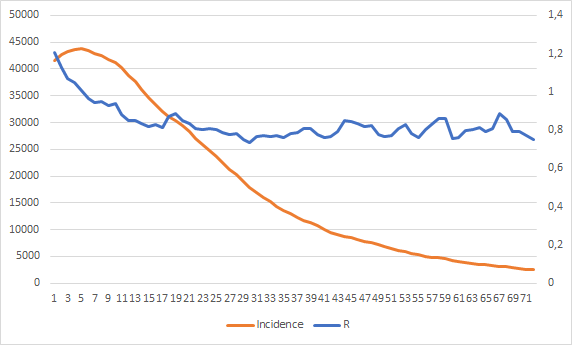
How long are we going to stay in Lockdown? Macron said at least early December but that doesn't mean anything. More important he said the metric was going down to 5000 cases a day. When will that be? A quick thread to estimate the lockdown duration.
https://twitter.com/jeuasommenulle/status/1321531337438830593
My first estimate is highly scientific: the first lockdown was 2 months, assuming the handling of the disease is a bit better but we started the lockdown a bit later and it's winter soon, 2 months sounds like a decent benchmark again.
The second estimate: let's reverse the incidence curve and see when we were at 5K. The incidence curve is so horrible now that it's hard to see the number, but 5k was basically the end of august, so 2 months again 

Slightly more scientific now: let's use the same curve for the changes in R after the first LD (using hospital data) & starting from where we are, i.e. R=1.2. R could go down less quickly (because LD is not as strict) but counterbalancing is that we are more cautious. Here: 

Starting from 40k we get to 5k in 56 days. Again, same ballpark estimate.
Let's face it: we'll be out just for Christmas.
Let's face it: we'll be out just for Christmas.
• • •
Missing some Tweet in this thread? You can try to
force a refresh




